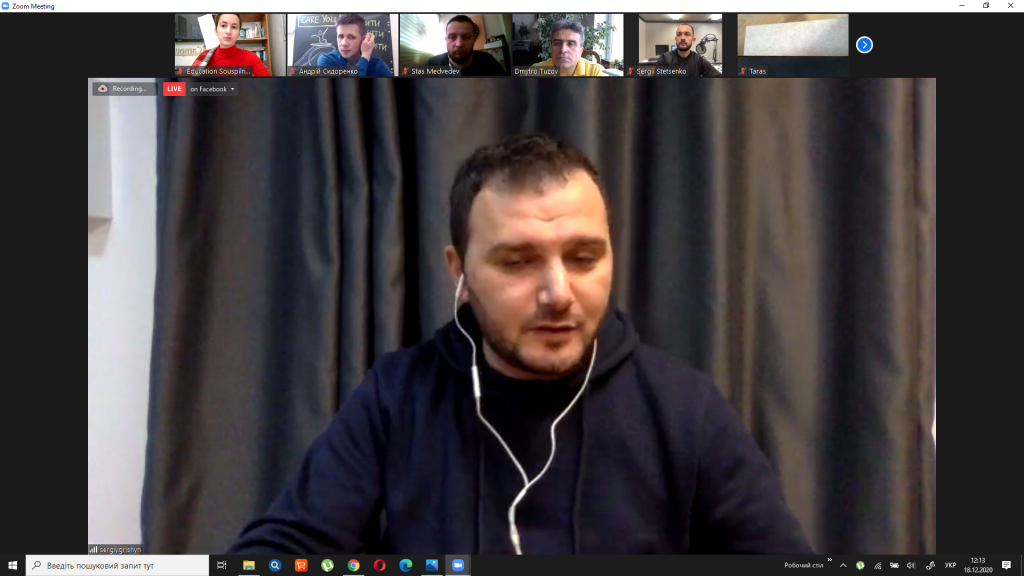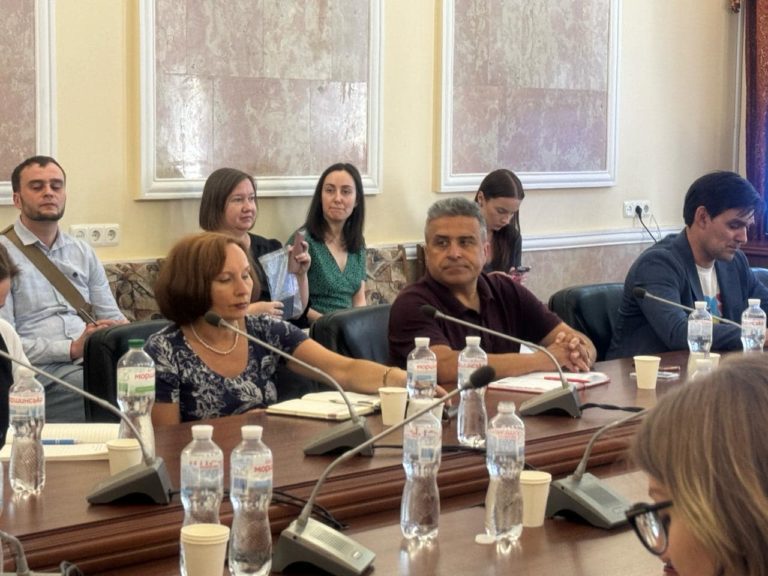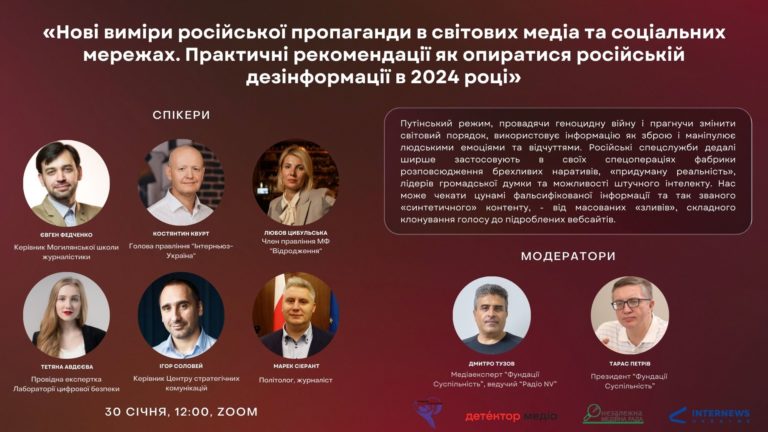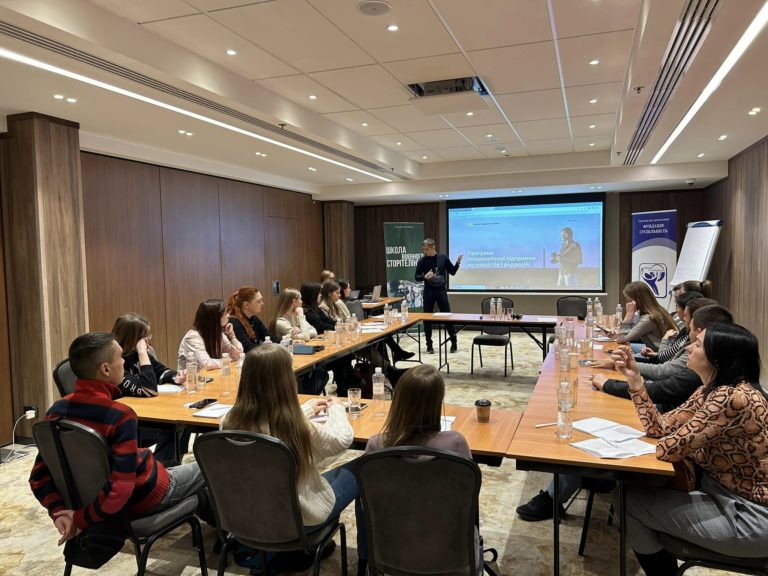On December 18, the experts discussed online journalistic work in times of lockdown, and how to maintain solidarity in newsrooms
The discussion was organized for journalists and editors by Souspilnist Foundation, with the help of Internews Ukraine and Detector Media.
The experts spoke about the challenges related to physical and emotional state the journalists and newsrooms face during the COVID-19 pandemic, specifically how to deal with them and return to work and their team after recovery.
The invited speakers included Kristina Berdynskykh, NV journalist, Mariia Zhartovska, independent journalist, Serhiy Stetsenko, Radio Liberty journalist in Prague, Serhiy Hryshyn, editor-in-chief of Islandiia TV channel, Stas Miedviediev, UA:PBC, Khrystyna Kolesnyk, psychologist, UCU, Artem Sokolenko, executive director of KRASNI PR agency.
The moderators were Dmytro Tuzov, journalist, Andriy Sydorenko, head of CareYou program at Souspilnist Foundation.

In the first place, it was said that the pandemic has drastically changed the way journalists work: starting from restricted access to the studios and fewer business trips and ending with anxiety for their own health and that of those they still need to have live communication with.
Since journalists and newsroom editors working in different formats joined in the discussion, their “reformatting” experience differed.
Serhiy Hryshyn noted that after the lockdown started, Islandiia TV channel organized their work in such a way that only a small part of the team worked in the studio – they even built a studio that technically allows one person to broadcast. Since the channel works in studio mode, there was no difficulty switching over to working remotely.
Part of the team of Radio Liberty’s Prague office switched over to telecommuting, while the other part continued to work “in the field”.
“At the onset of the pandemic, in the spring, there was this interesting story. The Czech Republic was one of the first in Europe to introduce full lockdown, and what we – as journalists – noticed in the work of our Czech colleagues was that they almost immediately started wearing masks on air, even in the studio. Then one of the presenters said that they wore masks in the studio to also show the audience that it’s important,” said Serhiy Stetsenko.
During the discussion, the media experts said that a significant number of their colleagues had or still have coronavirus, and shared their own experience with Covid-19; how important the team’s support is during this time, as well as an opportunity to have an adaptation period.
“From the first days (of illness) I realized I couldn’t work at all – I was in such a state that I couldn’t even read the news, so during the first week, I dropped out of the information space. And my newsroom allowed me to use this time to stay at home coping with the disease, for which I am very grateful,” said Kristina Berdynskykh.
Psychologist Khrystyna Kolesnyk noted that it is important to gauge one’s own strengths both during and after the illness, and to listen to oneself more often.
“We need to understand that each one of us is different. The thing that unites us all now is the universal human experience. In the post-COVID-19 period, I would advise people to cultivate self-compassion, see whether there are resources to take on a new project, allowing yourself to deal with this condition in different ways,” said the psychotherapist.
As possible solutions to support journalists during the pandemic at the newsroom level, the experts suggested the following:
- conducting training sessions for the team on how to work in the conditions of coronavirus and act in case of illness;
- monitoring the employees’ health and well-being on a daily basis to make prompt decisions on self-isolation of contact persons in case of symptoms;
- making sure that each team member has a family doctor and medical insurance, or establishing a mutual support fund at the newsroom level;
- having an action plan in case of journalists’ illness: how to unload employees, restructure their work;
- developing the public consciousness, in particular wearing masks on air, paying more attention to wording.
Watch the discussion here:
This event is made possible with the support of USAID-funded Media Program in Ukraine, implemented by Internews, and with the help of private patrons.


